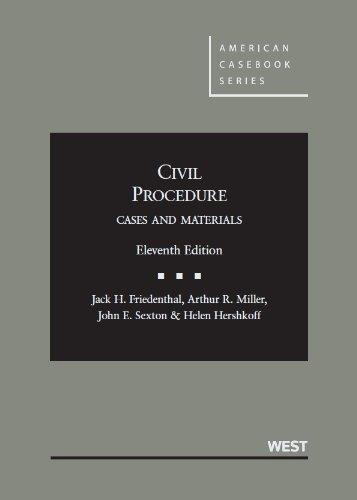1. [B]efore our lord the King at Westminster. Veale v. Warner was brought in the Court of...
Question:
1. “[B]efore our lord the King at Westminster.” Veale v. Warner was brought in the Court of King’s Bench, one of the three royal common-law courts, maintaining separate existence until merged in the High Court of Justice in 1873. The others were the Court of Common Pleas and the Court of Exchequer. All three developed out of the Curia Regis (the King’s Court), which at the time of the Norman Conquest and for a period thereafter performed administrative and judicial functions in conjunction with the king. The first offshoot was Exchequer, which originally was charged with the collection and administration of the king’s finances, but by 1250 had acquired full judicial jurisdiction. Next to develop separate status was Common Pleas, established by Henry II as the primary tribunal to hear cases not involving the crown. The remaining part of the King’s Court supervised Common Pleas through the writ of error, and heard matters particularly touching the king’s interests, such as criminal actions and cases involving his tenants in chief; it developed into King’s Bench, but the fiction was maintained that hearings before that tribunal were before the king himself. See Plucknett, A Concise History of the Common Law 143 51 (5th ed. 1956).
Step by Step Answer:

Civil Procedure Cases And Materials
ISBN: 9780314280169
11th Edition
Authors: Jack Friedenthal, Arthur Miller, John Sexton, Helen Hershkoff






